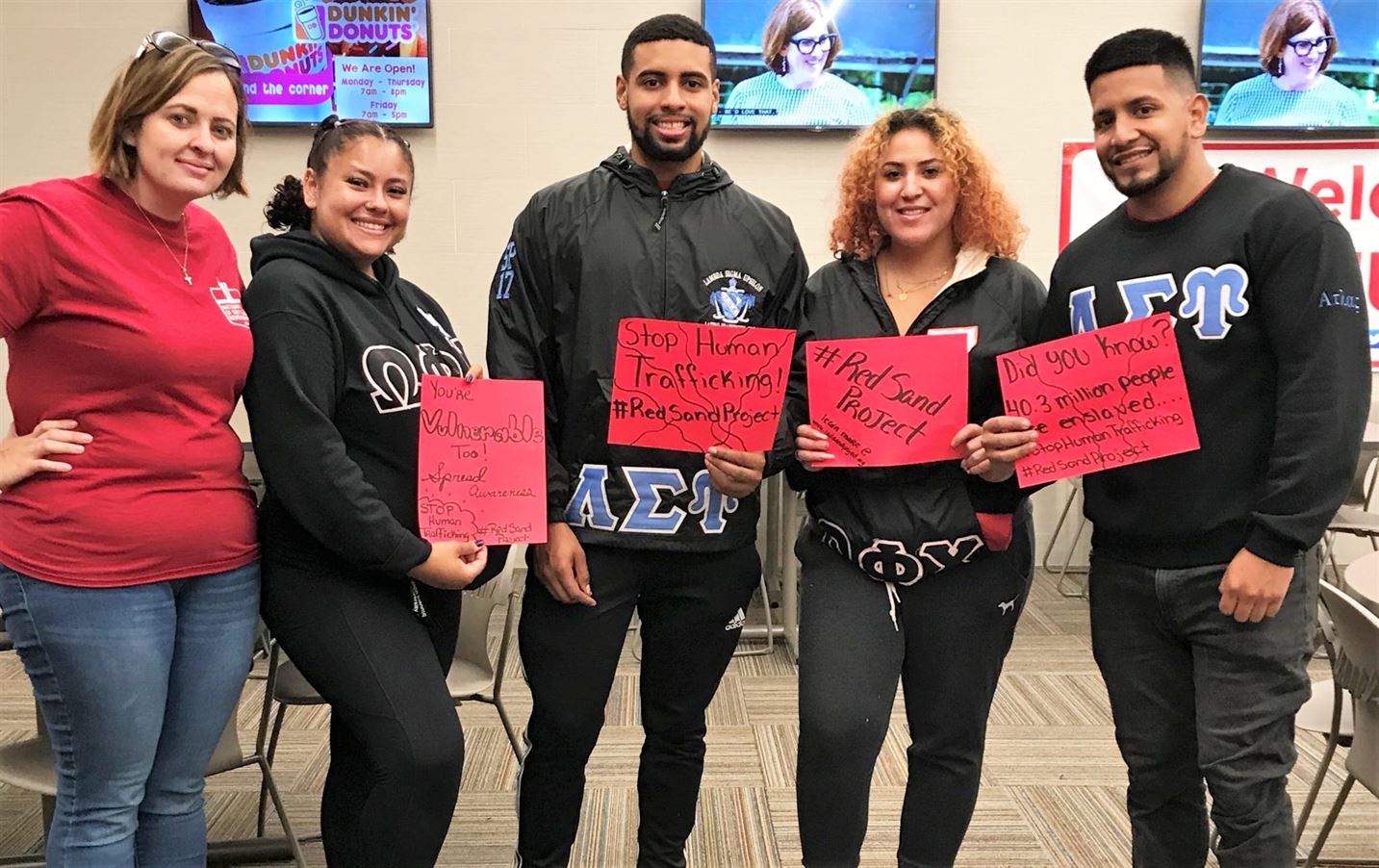As a part of the 9/11 National Day of Service, Krystal Woolston, assistant director at the Center for Community Engagement, along with 18 students, spread red sand on Montclair State University’s grounds in effort to raise awareness of human trafficking on Sept. 14.
For the last 12 years, students, staff and faculty at Montclair State have united for two large days of service at the beginning of each semester. One hosted on the Saturday closest to 9/11 and the other on Martin Luther King Jr. Day.
“[On] National Day of Service, in September, we do a full day of service as a reminder for those who served during 9/11,” Woolston said. “The way we believe you can really honor those first responders is through providing service to your local community.”
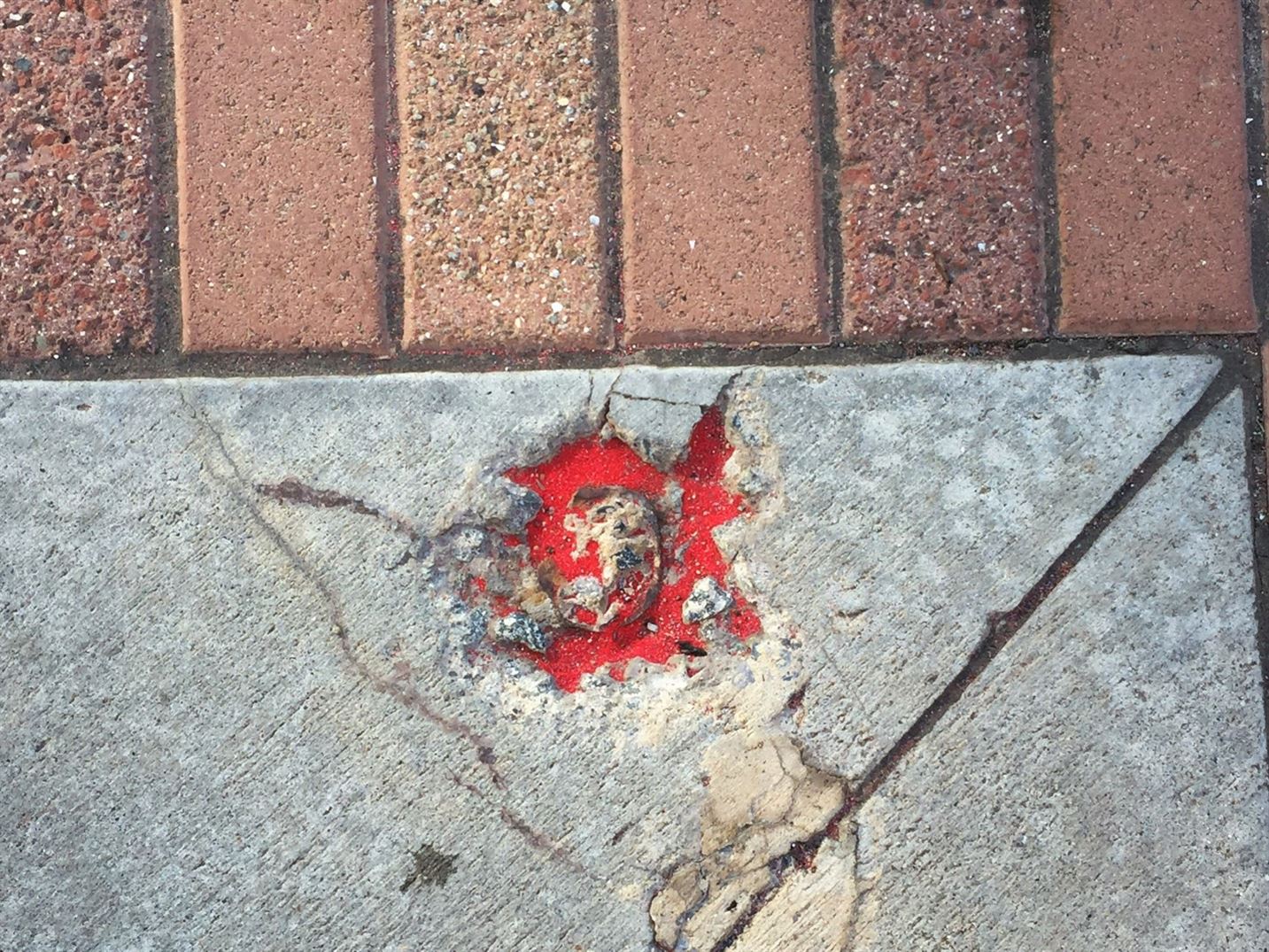
Red sand outside the Center For Environmental and Life Science.
Kelvin Jimenez Michaca | The Montclarion
Woolston, who is also the co-chair of the education committee for the New Jersey Coalition Against Human Trafficking (NJCAHT), is responsible for hosting different educational events around human trafficking. It was at one of the coalition meetings where she heard about the Red Sand Project and decided to share it with the Montclair State community.
“The concept behind red sand is that oftentimes those who are more susceptible to being trafficked are people who have fallen through the cracks of our society; you are literally bringing attention to the cracks of our sidewalks,” Woolston said.
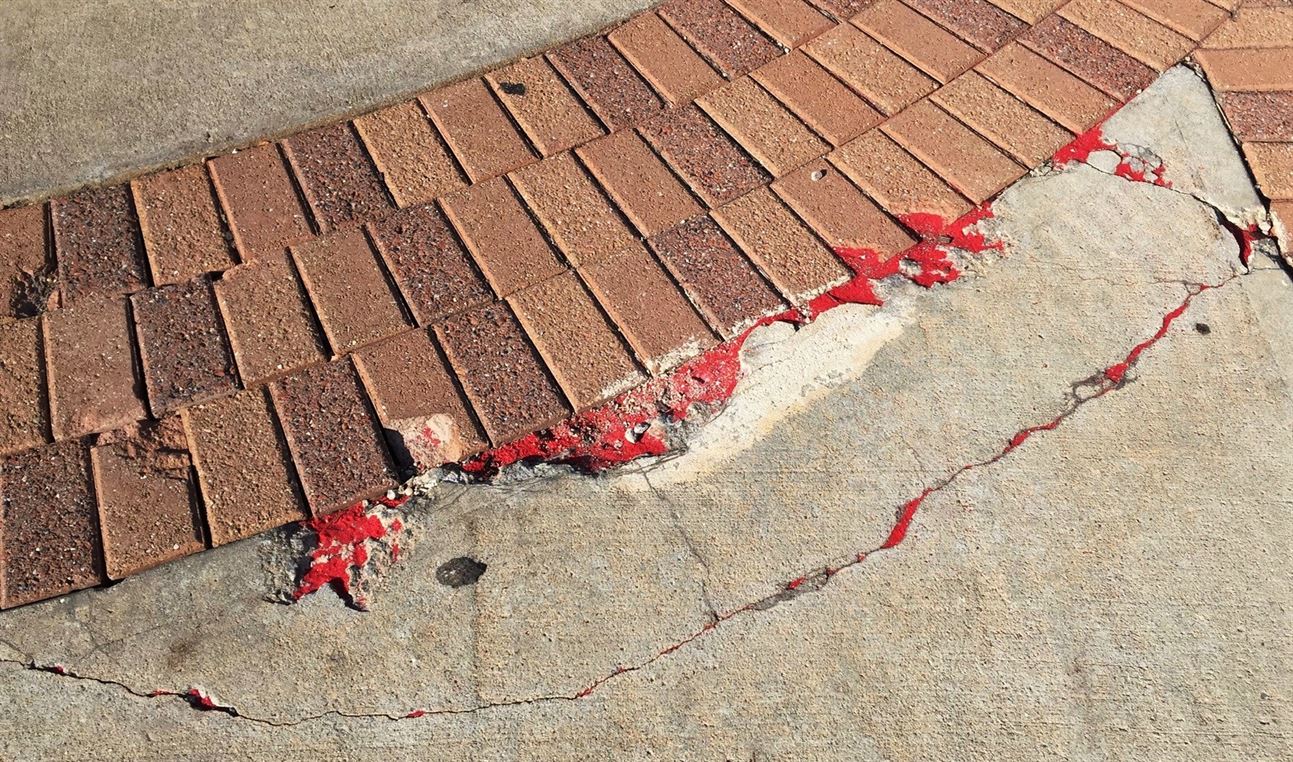
Red sand was spread by students in various spots throughout campus.
Kelvin Jimenez Michaca | The Montclarion
Molly Gochman first launched Red Sand Project in 2014, after realizing the depths to which slavery continues to be a contemporary reality. According to antislavery.org, globally, an estimated 40.3 million individuals live in slavery, whether in forced marriages, forced labor or for sexual exploitation. Gochman recognized that to find a solution to such a widespread challenge, increased public awareness and engagement would be essential, as stated on redsandproject.org.
For the students who signed up, their service consisted of three components. The students had to learn about human trafficking, educate the Montclair State community on what human trafficking is and its symptoms, and take action by sharing and spreading red sand throughout campus.
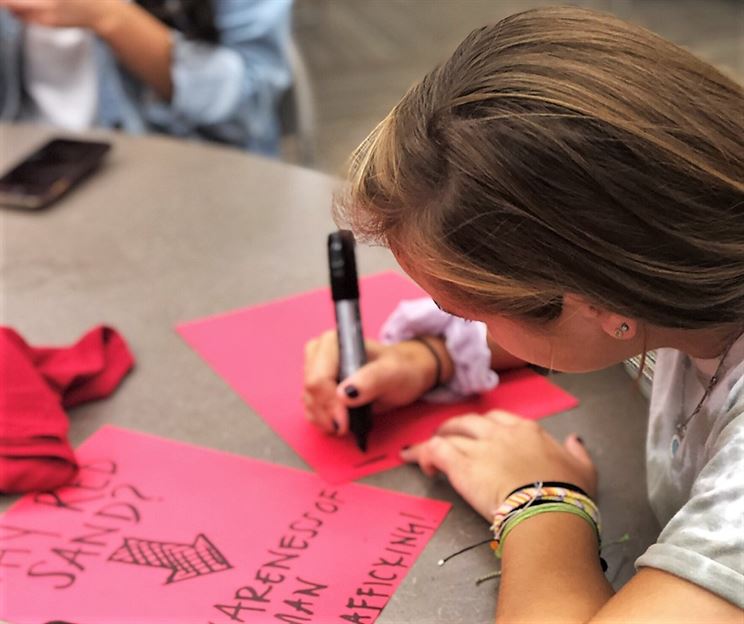
Students made posters after spreading red sand at Montclair State.
Photo courtesy of Krystal Woolston
Belinda Olmo, a senior English major, was one of the students who volunteered for the event.
“Human trafficking doesn’t only happen outside of our country, it happens within the United States and it’s always good to see the signs, effects and changes in people that are in danger,” Olmo said. “This topic needs to be discussed at Montclair State because not many people know that human trafficking happens in New Jersey.”
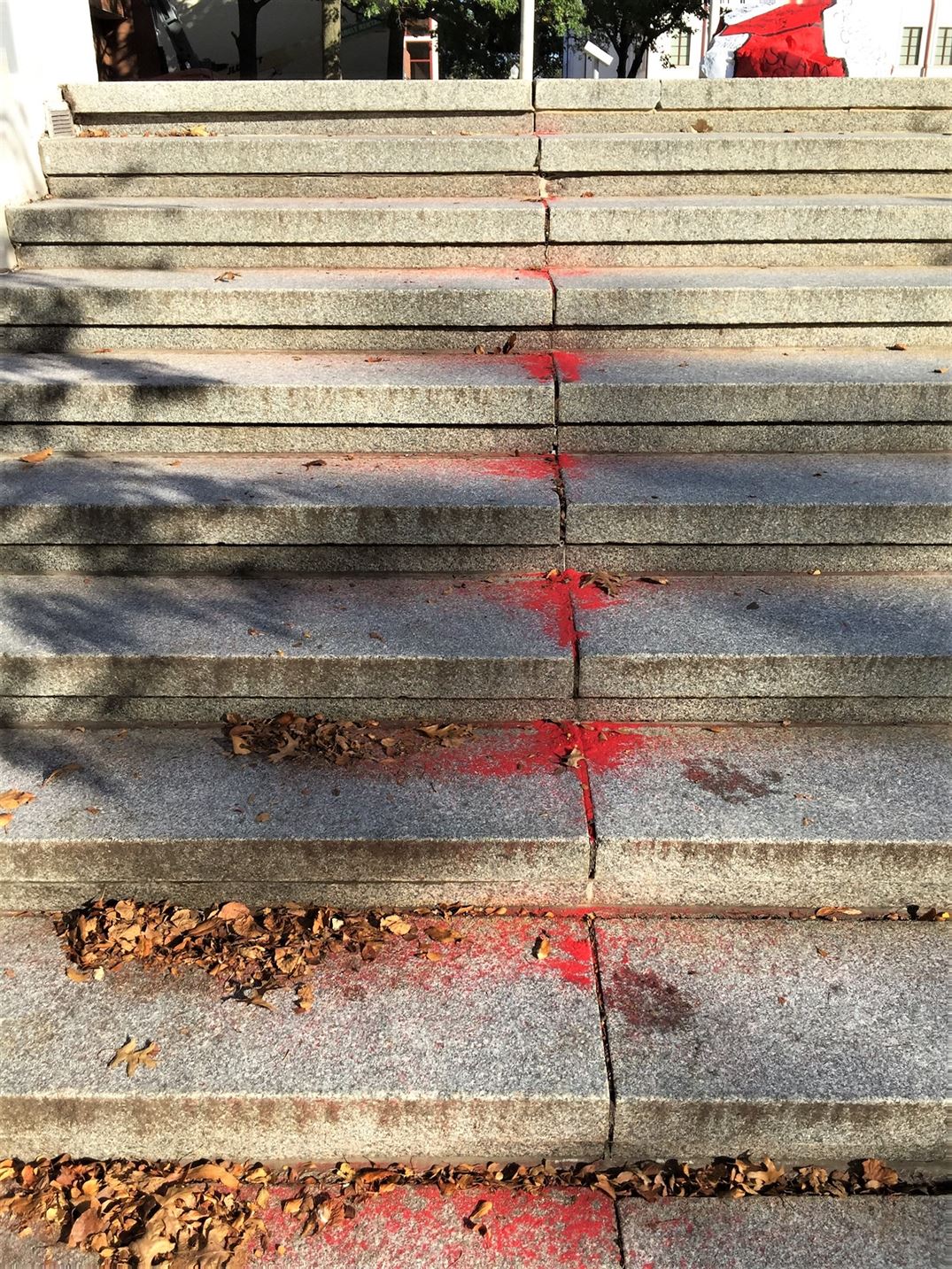
Red Sand on the steps outside of the student center to raise awareness of human trafficking.
Kelvin Jimenez Michaca | The Montclarion
Victoria Namnama, a senior English and linguistics major, approved of the red sand on campus.
“I wasn’t aware of the Red Sand Project. I didn’t know that it was supposed to raise awareness about human trafficking,” Namnama said. “More people should know about this. It’s an important topic that needs to be talked about.”
Human trafficking is estimated to claim up to 20 million victims worldwide, with 150,000 in the United States. Despite this, only 179 cases of sex and labor trafficking have been reported in New Jersey, according to njhumantrafficking.org.
“If we don’t talk about the things that are challenging, how do we solve them?” Woolston said. “How do we fix anything if we don’t actually talk about it? Raising that awareness and opening those conversations, I think, is really important.”
If you or someone you know is subjected to human trafficking, contact the New Jersey Human Trafficking hotline at (855-363-6548), or the National Human Trafficking hotline at 1-(888)-373-7888 or text BeFree to (2333733), available 24 hours a day, seven days a week.

